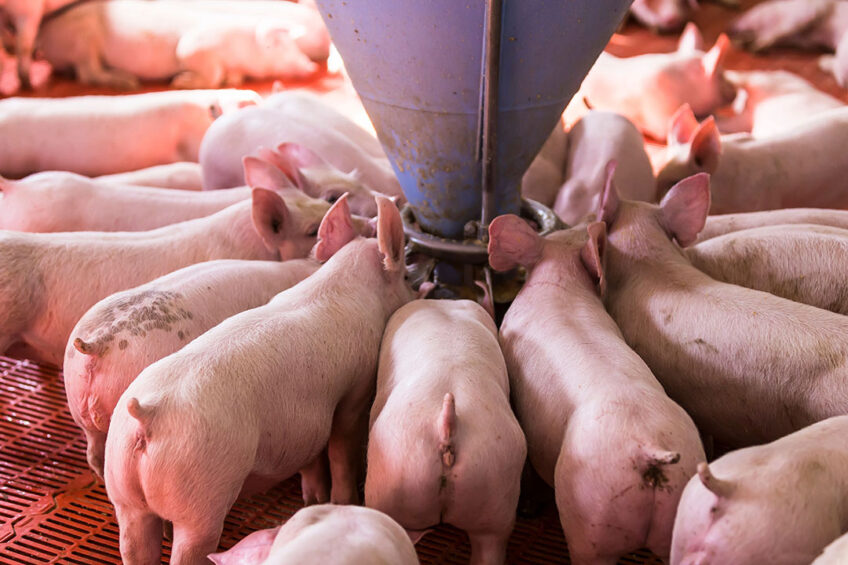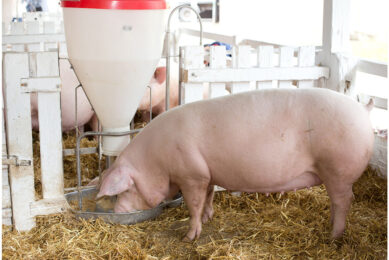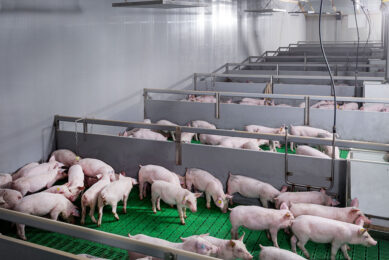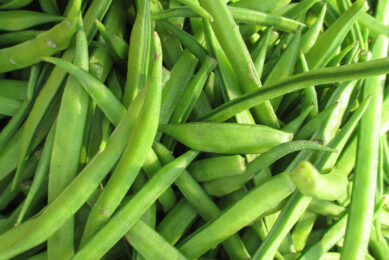What is the impact of organic acids in pig diets? Here are the top 5 impacts

The continuous use of growth promoting antibiotics has been banned in swine production systems due to concerns related to drug residue and antibiotic resistance in pathogens. To maintain pig health and performance, the use of organic acids as potential alternatives to antibiotics is recommended.
Organic acids modulate gut microbiota, play a role in combating pathogenic bacteria, reduce post-weaning diarrhoea in piglets, and eventually enhance the nutrient utilisation and growth performance of pigs. Organic acids also have some additional effects that go far beyond antibiotics, such as inducing a pH reduction in the gut tract and increasing the levels of pancreatic secretion.
The most used organic acids in pig diet are short-chain fatty acids such as:
- formic acid,
- propionic acid,
- butyric acid,
- acetic acid,
- citric acid, and
- malic acid.
BUT, WHAT IS THE IMPACT OF ORGANIC ACIDS IN PIG DIETS?
 Impact on gut pH
Impact on gut pH
The antimicrobial effect of organic acids is greater under acidic conditions in the stomach and less in neutral pH in the gut. Most bacterial species require a specific pH to achieve optimal growth, and they are unable to grow under extreme acidic conditions.
Organic acids directly reduce environmental pH through the release of hydrogen ions and thus prevent the proliferation of acid-sensitive bacteria. The lower the pKa value of the organic acids, the greater its effect on the reduction of stomach pH and the lower its antimicrobial effect in the more distal portions during its transit through the gut tract.
 Impact on nutrient digestibility
Impact on nutrient digestibility
Organic acids are used as acidifiers in pig diets to decrease pH in the upper region of the digestive tract and thus enhance nutrient digestibility. In addition, administration of organic acids improves pepsin activity, increases microbial phytase activity, induces pancreatic excretion, and increases trypsinogen, chymotrypsinogen A, chymotrypsinogen B, procarboxy peptidase A, and procarboxypeptidase B concentrations, which all result in greater protein digestion.
Organic acid supplementation also slows feed transit time in the digestive tract, which results in better absorption of essential nutrients. Citric acid releases minerals bound to the phytate molecules, and increases the utilisation of calcium, phosphorous, and zinc. Formic acid decreases bacterial nitrogen in different parts of the gut in pigs and improves apparent ileal digestibility of protein sources, certain essential amino acids, lipids, calcium, and phosphorus.
Supplementation with butyric and fumaric acids enhances apparent ileal digestibility of crude proteins and essential amino acids by up to 5%. Dietary supplementation of 10% malic, 13% citric, and 17% fumaric acids improves the digestibility of dry matter, nitrogen, crude protein, fat, and energy in growing and finishing pigs and lactating sows.
GUT HEALTH – special focus
– special focus
In 2022 All About Feed publish a special focus magazine on the theme of gut health. The articles examined feeding solutions and managements practices regarding gut health and how they can positively influence animal health, performance and profitability. Click here to read the articles…
 Impact on pathogenic bacteria
Impact on pathogenic bacteria
Organic acids penetrate through the cell wall of bacteria, reduce cellular pH, create a stressful environment, disrupt normal cellular functions and thus prevent bacterial growth, especially the pH-sensitive bacteria species. Supplementing citric, formic, fumaric, and lactic acids have beneficial effects on microbial populations in the gut. Formic, benzoic, lactic, and propionic acids protect feed ingredients from fungi and microbes such as E. coli and Salmonella species during storage time.
 Impact on swine performance
Impact on swine performance
Organic acids such as fumaric acid have growth-promoting effects due to their energy values and positive impact on the gut mucosa and gut epithelial cells absorption capacity after weaning. A mixture of benzoic, citric, fumaric, lactic, and propionic acids improve growth performance, feed intake, and gain-to-feed ratios in piglets.
The blend of organic acids including 10% malic, 13% citric, and 17% fumaric acids has a positive effect on the growth performance of piglets, growing pigs, and finishing pigs. Butanic, fumaric, and benzoic acid improve the growth performance of weanling piglets. Feeding post-weaning pigs with diet supplemented with citric acid, calcium formate, and calcium lactate and medium-chain fatty acids such as capric, lauric, and myristic acids improves average daily gain, average daily feed intake, and feed efficiency. Supplementation with 0.2% caprylic and 1.5% fumaric acids increases average daily gain in piglets.
 Impact on gut microbiota
Impact on gut microbiota
Supplementing 10% malic, 13% citric, and 17% fumaric acids to the diet of growing and finishing pigs decreases E. coli counts and increases Lactobacillus counts in the pig gut. Feeding weaned piglets with 4.1% propionic, 9.5% phosphoric, 10.2% lactic, and 17.2% formic acids increases Bacilli and Lactobacilli concentrations and reduces Salmonella and E. coli counts. Weaning pigs fed diets containing lactic and fumaric acids have lower colon E. coli.
Concluding remarks
Organic acids have positive effects on reducing gastric pH, improving nutrient digestibility, preventing the growth of pathogenic bacteria, and improving growth performance and gut microbiota. Various factors including type composition, dosage, formula, feeding regimen, environment, nutrient composition of feed, and the age and health status of animals impact the efficacy of organic acids. However, further studies are required to find the effective dose of organic acids with different combinations to replace antibiotics in the diets of pigs.
This article is based on a review ‘Organic Acids Mixture as a Dietary Additive for Pigs’ published in the Animals journal authored by Dinh Hai Nguyen, Woo Jeong Seok and In Ho Kim.
 Beheer
Beheer








 WP Admin
WP Admin  Bewerk bericht
Bewerk bericht